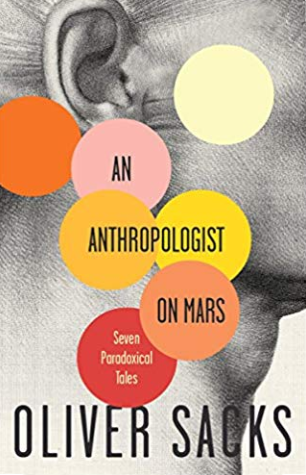




Cover of the 1985 book by Oliver Sacks
About the book
In his most extraordinary book, "one of the great clinical writers of the twentieth century" (The New York Times) recounts the case histories of patients lost in the bizarre, apparently inescapable world of neurological disorders. Oliver Sacks's The Man Who Mistook His Wife for a Hat tells the stories of individuals afflicted with fantastic perceptual and intellectual aberrations: patients who have lost their memories and with them the greater part of their pasts; who are no longer able to recognize people and common objects; who are stricken with violent tics and grimaces or who shout involuntary obscenities; whose limbs have become alien; who have been dismissed as retarded yet are gifted with uncanny artistic or mathematical talents.
If inconceivably strange, these brilliant tales remain, in Dr. Sacks's splendid and sympathetic telling, deeply human. They are studies of life struggling against incredible adversity, and they enable us to enter the world of the neurologically impaired, to imagine with our hearts what it must be to live and feel as they do. A great healer, Sacks never loses sight of medicine's ultimate responsibility: "the suffering, afflicted, fighting human subject." - Goodreads

Cover of the 1995 book by Oliver Sacks
About the book
Paradoxical portraits of seven neurological patients, including a surgeon consumed by the compulsive tics of Tourette's syndrome unless he is operating; an artist who loses all sense of color in a car accident, but finds new creative power in black & white; & others. - Goodreads

Oliver Sacks, M.D. was a physician, a best-selling author, and a professor of neurology at the NYU S...

Inspired by the homonymous book by Fernando Vidal and Francisco Ortega, this timespace presents the authors' genealogy of the cerebral subject and the influence of the neurological discourse in human sciences, mental health and culture.